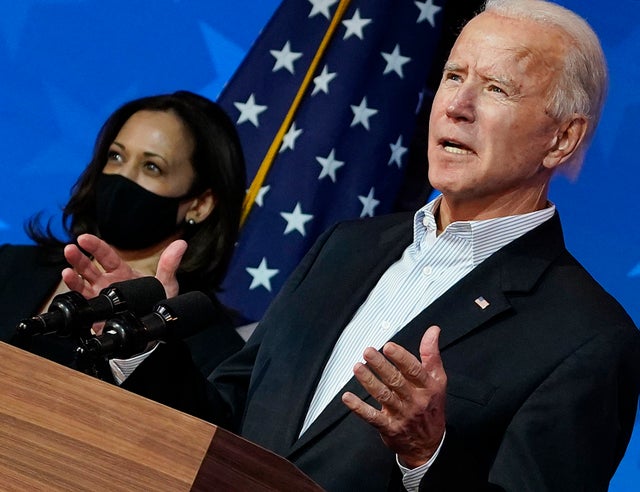Manas Dasgupta
NEW DELHI, Nov 8: A long-time friend of India, Joe Biden defeated President Donald Trump to become the 46th president of the United States on Sunday, though Donald Trump has refused to concede defeat and is approaching the court demanding re-count.
His running mate, the Indian-American Kamala Harris will be the new vice-president.
Biden crossed the winning threshold of 270 Electoral College votes with a win in Pennsylvania. His victory came after more than three days of uncertainty as election officials sorted through a surge of mail-in votes that delayed processing.
The American public has for the first time in a generation denied a sitting president a second term. President Trump’s tenure lasted just four years.
Much before he became Vice President in the Barrack Obama administration, Biden had advocated a stronger relationship with India.
Biden played an important role, both as Chairman of the Senate Foreign Relations Committee and later as Vice President, in systematically deepening strategic engagement with India.
In fact, in 2006, three years before he became the Vice-President of the US, Biden announced his vision for the future of US-India relations: “My dream is that in 2020, the two closest nations in the world will be India and the United States,” he had said.
Although (then) Senator Obama was initially hesitant to support the Indo-US nuclear deal, Biden led the charge and worked with both Democrats and Republicans, to approve the nuclear deal in the US Congress in 2008.
Biden was one of the key advocates of strengthening the Indo-US partnership, especially in strategic areas. During that time, the US officially declared its support for India’s membership in a reformed and expanded United Nations Security Council. This had been a key demand of successive Indian governments, which was fulfilled by Washington during Biden’s term as VP.
The Obama-Biden Administration also named India a “Major Defense Partner” – a status approved by the US Congress – which made it easier to share advanced and critical technology to India to strengthen defence ties. This was crucial since it was for the first time that any country was given this status, outside of the US’s traditional alliance system.
In fact, in August 2016, at the fag end of the Obama administration, the two sides signed the Logistics Exchange Memorandum of Agreement (LEMOA), the first of the three “foundational pacts” for deeper military cooperation.
The Narendra Modi government’s connection with President-elect Joe Biden goes back to the days when the present External Affairs minister S. Jaishankar was Indian Ambassador to the US during the Obama administration and present Ambassador to US Taranjit Singh Sandhu was his deputy. The two have kept in touch with close advisors of President elect Biden ensuring that US maintains its bipartisan consensus towards India.
While the Indian foreign policy will indeed have to recalibrate its approach towards the incoming Biden administration, New Delhi knows that president-elect is a collegial guy, who was more approachable to Republican adversaries as a vice president than the president during the Obama years.
Some Indian experts in foreign affairs believe that unlike Trump who hid his strategy behind a brash style, the incoming President will be more predictable in dealing with the world. He is expected to be tough yet not confrontational with China, will mend fences with Europe and be slightly rough with Russia.
Even though the Chinese experts are gloating over President Trump’s defeat, the US system now firmly believes that Beijing is not only an adversary but also a threat to future. So one should not expect bombastic statements against the Communist Party of China during Biden-era but US policy on China has turned full circle and there should be a build-up on the Asia pivot that was promised but not delivered in the Obama administration. Trump, on his part, may be down but not out and will campaign for the Senate run-offs in Georgia to remain politically relevant in Republican Party.
China’s all weather ally Pakistan might also heaving a sigh of relief at the exit of President Trump but New Delhi believes that incoming administration will be tough on terrorism, particularly after the recent Islamist attacks in Europe by migrants. The president-elect is expected to continue with past policy of exiting from Afghanistan but that won’t be easy as the US intelligence agencies and Pentagon have been reporting the escalation of Taliban violence with the backing of Haqqani network and Quetta based Shura with direct involvement of Pakistan deep state.
As president-elect is expected to work with expert advice on Afghanistan as Islamabad’s double play in Afghanistan is now known to its former friends like the United Arab Emirates and Saudi Arabia with proof. Pakistan’s problem in fact may multiply because Biden was having a very poor opinion about Islamabad’s newfound ally Turkey.
While New Delhi will wait till January 2021 for formal engagement with the new administration, it appears most confident in dealing with the new occupant of the White House, the experts said.

